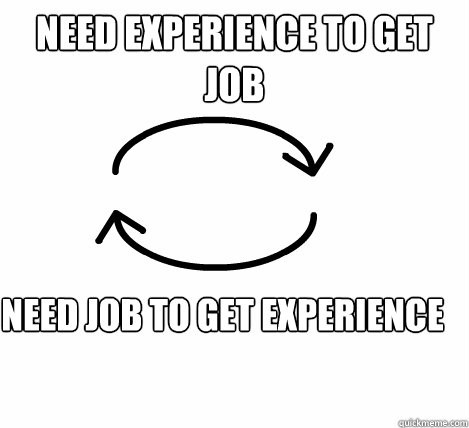
Throughout our entire undergraduate career we experience the same old story again and again; you need experience to get experience.
It’s the hardest thing to figure out if you don’t know what kind of experience you need or where to get it. This is where UConn excels – by providing its students ample opportunities. As an UConn student myself, I have found that there are four avenues that can help you gain the experience or skills you need to move forward in your career: on campus jobs, experiential learning, extracurricular activities, and research.
- On Campus Jobs
You won’t find a better offering of diverse resources and assistance in finding opportunities for part-time jobs, internships, co-ops, or volunteer work. For those of us who are campus bound, there is a cornucopia of part time jobs that can offer you not only experience but skill development. UConn hosts a database specifically for these opportunities at http://studentjobs.uconn.edu. These jobs span a multitude of departments such as Dining Services, Academic Departments, Student Affairs, Information Technology, Admissions Office, and more. Even better then there just being opportunities is the range of responsibilities and leadership. You can find jobs like being Student Administrative Assistant or Student Trainee as well as management level positions like Student Dining Hall Manager or Student Union Building Manager. There are plenty of experiences here on campus that can help you obtain the skills needed to move forward.
- Experiential Learning
More often than not you’ll hear this referred to as getting an internship or co-op (cooperative education). These types of experiences can be very beneficial, not only for your own personal development, but also as a giant stepping stone into the professional world. Internships and co-ops occur in practically every industry, so there is something for everyone. Again, UConn exceeds expectations when it comes to assisting its students in their pursuit of these experiences. Here at the Center for Career Development we not only host a multitude of resources available to assist you, including but not limited to guide books and career counselors, but additionally operate an extremely populated database called HuskyCareerLink. In this database you’ll find scores of internship, co-op, and even full-time opportunities posted by our own workers and employers.
- Extracurricular Activities
One of the best ways to not only enhance your skills but network with both like-minded students and industry professionals is through joining one of the hundreds of student groups here on campus. There is a club for everyone – from professionally minded groups like the Society for Human Resource Management to purely social enjoyment clubs like the People Watching Club. Participating in these is not only a great way to make UConn a smaller and more sociable place, but also an awesome way to further skills. Another way to make the best of joining a club is getting involved in its leadership positions. All groups are required to have them and many create additional ones for miscellaneous responsibilities. Leadership skills and experience are universally looked for no matter the industry and also increase your own networking capability.
- Research
People often think research is for the academic or science inclined when in reality it applies to so much more. Insert shameless plug about UConn being a top-tier research university. Research can help you gain experience and knowledge that may not be available through one of the other options. It allows you to focus your attention on an issue and explore it to benefit your education/career aspirations. I know personally how helpful it can be since I have been conducting research since the beginning of my Junior year. So far, I have participated in three different labs over the course of the past year and a half on a variety of different topics. As I aspire to have a career in Human Resources, I joined a lab to work on a project that examined job post effectiveness on major job websites like monster. This study allowed me to explore in-depth recruiting methods and information I would have not learned otherwise like in a business class. When locating research, talk to your professors and advisor, they will be your prime resource.
Unfortunately, the cycle will always continue. To get experience you will always need some experience, but maybe with some of the information provided here you can start filling the gap.
– William Burk

